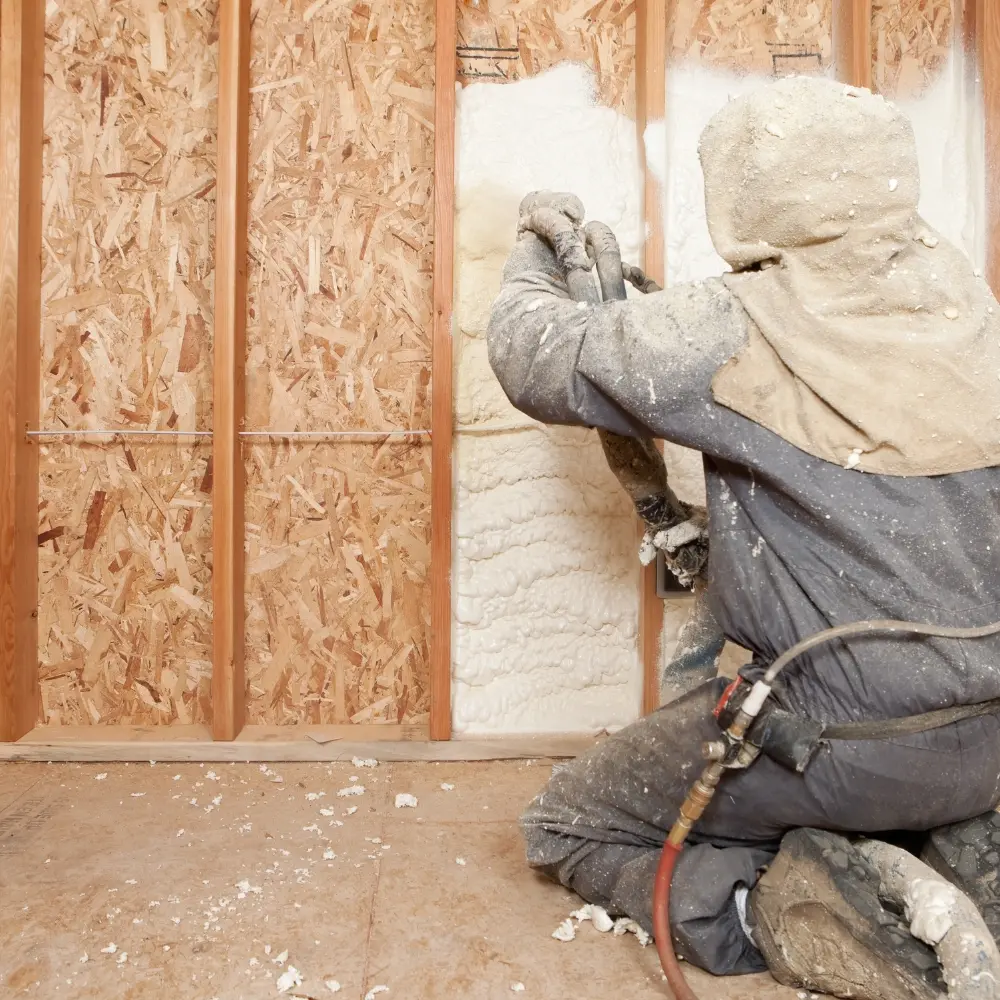 Spray foam insulation is a smart choice for many Brooklyn homeowners looking to improve energy efficiency and comfort in their homes. However, in Brooklyn's unique climate, where temperatures can fluctuate dramatically between seasons, it's essential to understand how both environmental and material temperatures can influence the quality of your spray foam insulation. This article will explore how temperature impacts spray foam insulation's reactivity, yield, and overall performance, focusing on Brooklyn's specific needs and conditions.
Spray foam insulation is a smart choice for many Brooklyn homeowners looking to improve energy efficiency and comfort in their homes. However, in Brooklyn's unique climate, where temperatures can fluctuate dramatically between seasons, it's essential to understand how both environmental and material temperatures can influence the quality of your spray foam insulation. This article will explore how temperature impacts spray foam insulation's reactivity, yield, and overall performance, focusing on Brooklyn's specific needs and conditions.
Brooklyn's homeowners face a climate that ranges from hot, humid summers to cold, damp winters. These temperature extremes can significantly affect the reactivity of spray foam insulation. The foam's chemical components must be mixed at the right temperature during the application process to ensure proper expansion and adhesion.
For instance, in the winter months, when Brooklyn’s temperatures can dip well below freezing, it's crucial to pre-condition the foam materials to prevent them from being too cold, which can lead to poor reactivity and reduced foam quality. Conversely, during the summer, high humidity combined with heat can accelerate the reaction too quickly, leading to issues like uneven application and poor coverage.
Proper material temperature management is essential for achieving high-quality spray foam insulation in Brooklyn. Here’s what you need to know:
The yield and quality of spray foam insulation can vary significantly depending on how well the material temperature is controlled. In Brooklyn, where older homes with unique architectural features like brownstones and row houses are ordinary, achieving consistent insulation coverage can be challenging. Here's how temperature factors into the equation:
To ensure the best results for spray foam insulation in Brooklyn, homeowners should consider the following tips:
Understanding how temperature affects spray foam insulation is crucial for Brooklyn homeowners who want to maximize its benefits. By managing material temperatures and working with professionals who understand Brooklyn’s climate and home styles, you can ensure that your insulation is practical and durable. This knowledge empowers you to make informed decisions about your home's comfort and energy efficiency. If you’re considering spray foam insulation for your Brooklyn home, take the next step by consulting with experts who can tailor the process to your needs.
Contact Energy Brite today for personalized advice and professional spray foam insulation services in Brooklyn. Your home deserves the best—ensure it’s protected and comfortable all year round.
 We are thrilled to say that we are Staten Island's only BPI GoldStar Contractor and to be a part of NYSERDA's Home Performance with Energy Star Program.
We are thrilled to say that we are Staten Island's only BPI GoldStar Contractor and to be a part of NYSERDA's Home Performance with Energy Star Program.
 Experience unparalleled energy efficiency and indoor comfort with Energy Bute's. spray foam insulation.
Experience unparalleled energy efficiency and indoor comfort with Energy Bute's. spray foam insulation.
 Our talented team has a demonstrated track record of success and satisfied customers. When it comes to solar panels and solar energy, our team knows what they are talking about.
Our talented team has a demonstrated track record of success and satisfied customers. When it comes to solar panels and solar energy, our team knows what they are talking about.
 We offer Home Energy Audit services in Staten Island.Getting an energy audit performed on a home saves individuals up to 25% on their energy bill (annually).
We offer Home Energy Audit services in Staten Island.Getting an energy audit performed on a home saves individuals up to 25% on their energy bill (annually).